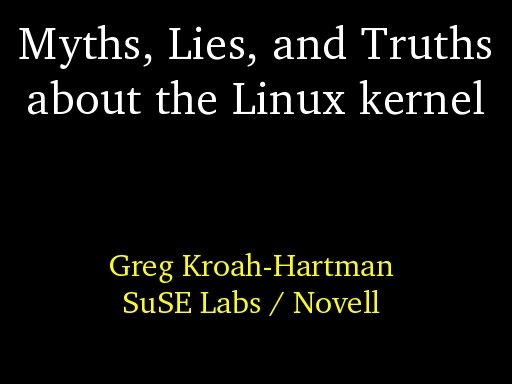Originally posted by bridgman
View Post
1) Without proprietary packages, distros wouldn't be very unique since the packaging system is much of how they differentiate themselves from others, except for the support, several software projects that they are the main directors of, and their unique "starter bundle"/iso of Linux software which may be a good starting point for many Linux users wanting to get up and running quickly with a certain set of basic software.
2) Getting rid of proprietary software packaging leaves you with everything else aside from the first thing.
3) They're quite possibly clinging to proprietary package management then as a way to be more unique.
Which comes at the cost of: fragmenting the Linux community, making it difficult for developers to supply Linux software for others to use, making it difficult for device manufacturers to supply easily installable drivers on CDs shipped with their products, and heavily reducing the sharing of software between Linux users.
Yahoo IM User: "Here, try out this cool program!"
AIM User: "OK! Wait, it's not in my repository, they haven't packaged it yet..."
Yahoo IM User: "OK, here's the package I have!"
AIM User: "Oh...my system can't read these kinds of packages." OR "It's not installing correctly...says that the dependencies can't be met."
MSN User: "Haha, I'm on Windows, basically all software packages can be shared easily."
Other two: *grumble*
If what you say, and I also hypothesis, is true, then I'm their enemy. Creating packages that are proprietary is selfish, and I and everyone else should only support packaging solutions which will grant free and open access to anyone using a package manager that adopts the open format(s). Companies pushing things to be proprietary in order to force, what do they call it...their "stream", to force everyone to have to come to them for everything? Yeah, that. That goes against everything that made the Free Software Movement great. Lock-in is exactly what Linux users are trying to escape from, so aiding an environment of lock-in and proprietary packaging for Linux is just flat out wrong.



Comment